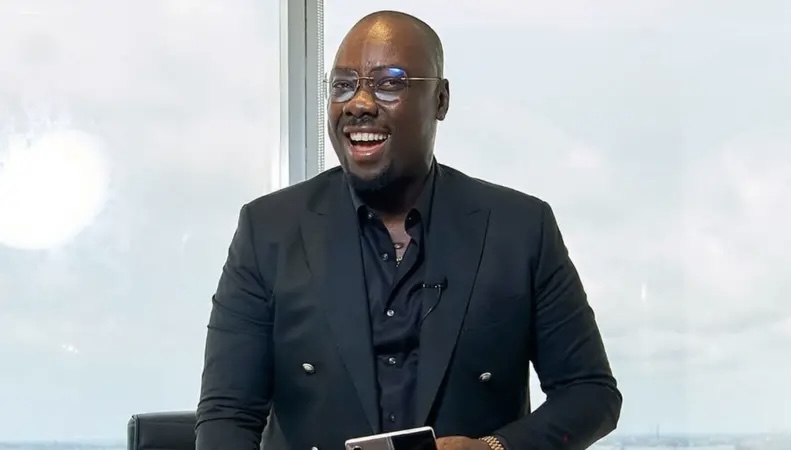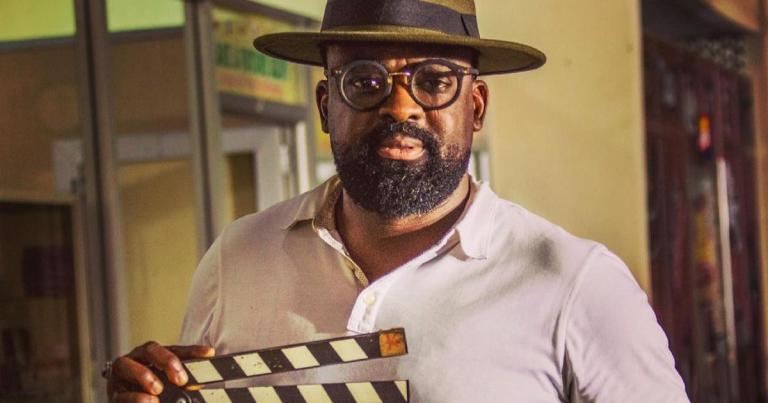Obinna “Obi” Iyiegbu, best known as Obi Cubana, is a Nigerian businessman, socialite, entertainer and philanthropist. He has other businesses like CASA CUBANA Real estate Abuja, Lagos. Plans are ongoing to ensure that Cubana London and Dubai is birthed. He has won several awards locally and internationally. His proficiencies include Leadership, Entrepreneurship Development, Management, Negotiation, Problem Solving, Networking and Portfolio Diversification.
Obinna is interested in Family, Fun, Finance and Food. He is married to his permanent girlfriend of 18 years, Ebele Iyiegbu, aka Lush Eby, a lawyer by profession and CEO, Kiek Foundation. Together, they are blessed with five children, four biological and one adopted.
When Obi Cubana stepped onto the stage, the room carried that familiar blend of hunger and ambition, the kind you only find where entrepreneurs gather, searching for the code that separates those who merely make money from those who build empires. With his easy smile and unmistakable confidence, he began with a truth that cut through the hall like a blade: “Many businesses we call scams today didn’t start as scams. They became scams because success met an unprepared structure.”
He told a story about a brilliant Forex trader he knew, a young man with talent, discipline, and unbelievable returns. When the man proudly declared that he could pay 30% ROI monthly, Obi didn’t congratulate him. Instead, he invited him over. Not to invest, but to save him from himself. Because the problem with growth, he explained, is that it doesn’t knock politely. It barges in with expectations, staff, offices, cars, image, pressure, and suddenly, what once worked begins to crumble, not because the founder is bad, but because the system is weak.
This is the mistake many entrepreneurs make: they chase momentum, not structure. They pursue returns, not models. They celebrate inflow and ignore capacity. “Growth must be audited,” he said. “Because more money is not just a reward, it is a responsibility. If your structure cannot carry your success, your success will break you.”
He spoke about companies that collapsed under the weight of their own hype, businesses that owed ₦22 billion with only ₦10 billion in the bank. Not fraud. Miscalculation. No system. No discipline. No evolution. According to him, “the cost of a capable person is cheaper than the cost of a costly mistake.” When you grow, you must grow in thinking, in hiring, in leadership, in values, and in the way you listen to your business.
Growth, he said, forces every entrepreneur to keep asking: Is my model still valid? Is my strategy still creating value? Are ideas moving freely in my organization, or is politics silencing innovation? Am I still operating by my values, or has hustle replaced principle? Because a business is not sustained by money or energy, it is sustained by clarity, values, and intelligent systems.
He emphasized that money is a loud communicator, but the market is louder. The market tells you when your product is no longer loved. It tells you when your price is foolish. It tells you when your service is average. Entrepreneurs fail when they stop listening. Many don’t crash because of competitors, they crash because they refuse to accept feedback, data, or reality. “If the market is talking and you’re arguing, you’re already on your way down,” he warned.
The audience laughed at some points, nodded at others, but the weight of his message sat firmly on the room: don’t romanticize hustle, structure it. He painted a picture of true business growth by asking everyone to calculate their real life cost, rent, feeding, school fees, fuel, black tax, emergencies, then compare it with the dreams their staff also carry. Because if a business cannot eventually support the dreams of the people building it, it will bleed talent until it collapses. “Build a business big enough for everybody who believes in you,” he said. “When people enter your system, they must see a future. Otherwise, they will leave, and you will start from zero again.”
He challenged the room to stop building for hype and start building for history. To stop chasing applause and start building capacity. To stop copying blindly and start thinking strategically. Values, he insisted, are not decoration, they are the spine. If you stand for excellence, stand for it everywhere. If you say no to shortcuts, enforce it. Without values, growth becomes cancer, big, fast, destructive.
As he closed, his voice grew firmer, more urgent. “This generation likes speed. But speed without direction leads to disappearance. Don’t just blow. Build. Don’t just trend. Transform. Don’t just make money. Multiply impact. A viable business is not the one that shines for five years, it is the one that your children and your children’s children can inherit and still grow.”
Then came the final charge. “When you leave here, go and build with sense. Audit your growth. Refine your strategy. Empower your people. Align with your values. Fix your structure. Listen to the market. Make your business so solid that no scandal, no shock, no season can wipe you out. Build something that outlives you.”
The hall erupted, not just in applause, but in awakening. Because in that moment, everyone understood that longevity is intentional. Wealth is engineered. Legacy is designed. And building a viable business that transcends generations is not luck, it is a blueprint, and it must be followed.










